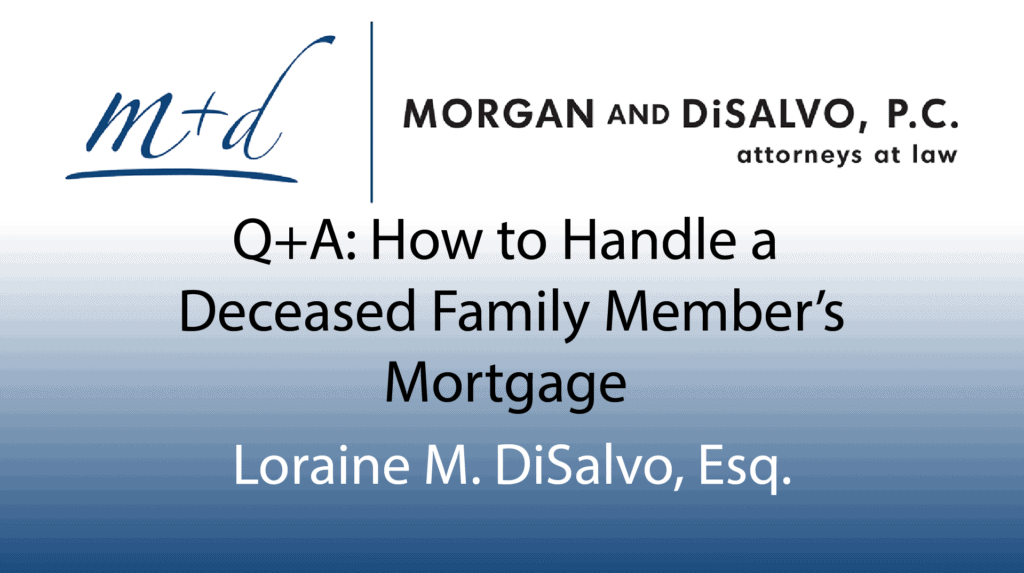Question: I’m paying the mortgage on our family home. The mortgage loan company wants my grandmother to respond but she and my mother are both deceased. What do I tell the mortgage loan people?
Loraine’s Answer: If your grandmother, who is deceased, was responsible for the mortgage, someone will need to be appointed to handle her estate. That person will then be able to talk to the mortgage company, as well as execute other estate tasks, such as transferring the house to the appropriate heirs or beneficiaries, communicating with other creditors, managing the estate’s assets, and performing the other duties that need to be completed after someone has passed.
If your grandmother had a Will, refer to it to determine who is the nominated Executor. If she did not have a Will, then you, as one of the heirs, may be able to be appointed as the Administrator of her estate. Either way, you should consult a probate attorney for help figuring out what needs to be done and how best to accomplish it. An experienced probate attorney can help you reduce the overall burden of an estate administration and the money spent on fees can save you a lot of expenses, time, and headaches.
In the meantime, you should tell the mortgage company that your grandmother has passed and that the family is taking steps to open her estate. You should keep track of any payments you have made on the mortgage because you may be able to be reimbursed by the estate- Please also note that, if the value of the house is less than the balance due on the mortgage, or if the estate otherwise may not have enough money to pay the mortgage plus all of the other debts and expenses, you may not be able to fully recover the mortgage payments you make. You should take this into consideration before you keep making any payments. You need to consult an attorney and get started dealing with the estate as soon as you can.
Key Estate Planning Takeaway: A deceased’s person’s family cannot just take over the person’s assets or their debts, such as a mortgage. Instead, it is generally critical for someone to be legally appointed to represent the person’s estate, either as an Executor (if there is a Will) or as an Administrator (if there is no Will). The appointment of an Executor or Administrator in Georgia requires the filing of the appropriate petition with the appropriate Probate Court- it is not automatic. When a person dies owing a mortgage, it is very important for the family to take steps to notify the lender that the person has died, to try to make arrangements to continue to make payments until the estate can be opened, and to work on getting the estate opened and an Executor or Administrator appointed so that the mortgage can be dealt with properly.
This “Q&A with Loraine” blog series features answers from Morgan + DiSalvo Partner Loraine DiSalvo to questions posted on www.avvo.com. A key takeaway from each exchange highlights an important facet of estate planning.


